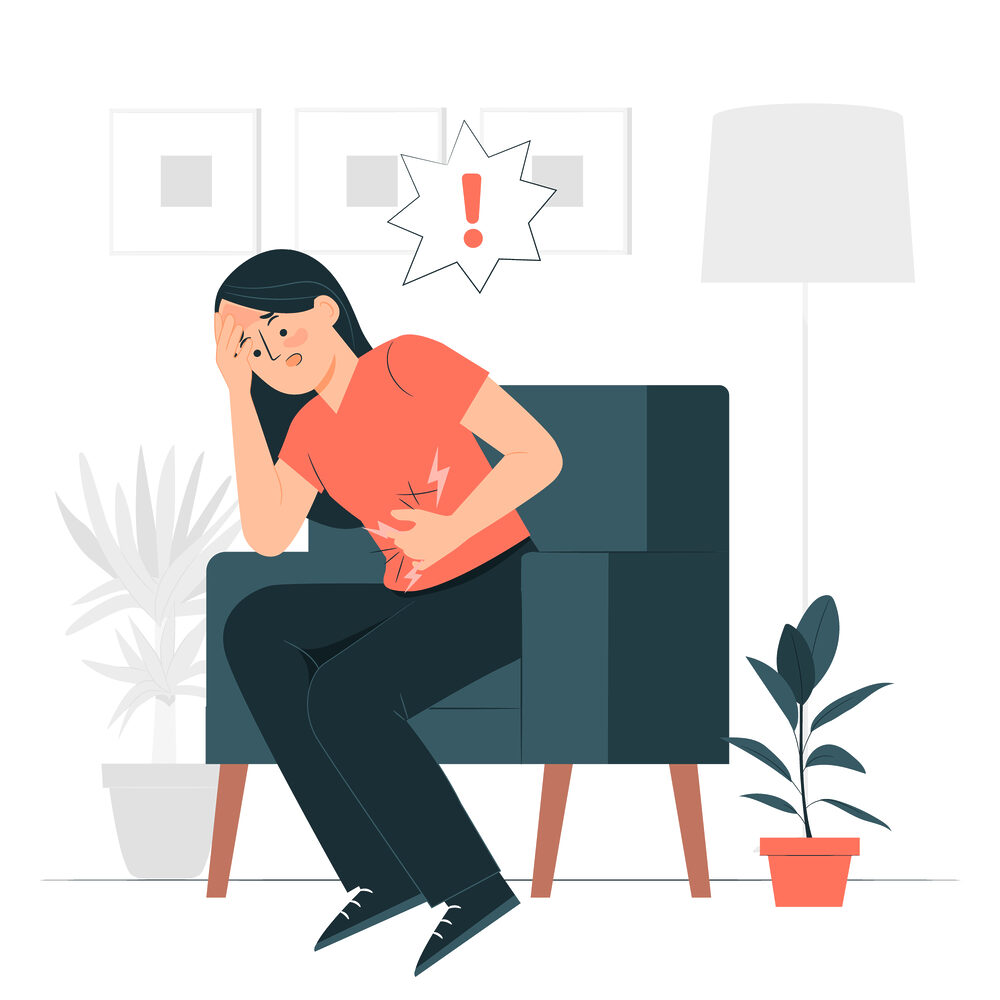You may recognize yourself when hearing others talk about suffering from digestive issues like stomach aches, bloating, constipation or diarrhea?
If this is the case, when it happens to you, does it limit your ability to enjoy activities, and does it have a negative influence on your health?
You’re not alone. Stomach aches can affect everyone, at any age. For example, at least 1 in 10 people suffer from irritable bowel syndrome, and women are almost 2x more susceptible than men.
Digestive issues are often perceived as a common and sometimes difficult-to-understand problem, therefore, in order to find solutions to these aches and pains, it’s very important to have a clear understanding of their triggers.
It is also interesting to note that by making a few key nutritional changes, you can generally reduce their frequency or, better yet, create a lasting solution, thereby avoiding them altogether.
In this month of irritable bowel syndrome awareness, I’d like to demystify the causes and health implications of stomach aches with you. There are many possible causes which provoke these uncomfortable digestive sensations such as:
- Digestive disorders
- Viruses, infections, gastrointestinal diseases
- Imbalance of intestinal bacteria (dysbiosis)
- Stress and anxiety
- Eating too quickly
- Changes in eating habits
- Alteration of the intestine-brain axis
When talking about irritable bowel syndrome the symptoms are often recurring, although each person’s symptoms may be different, here are some common signs:
- Cramps, tightness, abdominal pain
- Bloating, bloated belly
- Diarrhea and/or constipation
- Feeling of incomplete stools
- Presence of mucus in stools
- Fatigue, anxiety, stress
Did you know that there is no simple way to diagnose irritable bowel syndrome? As a result, your doctor may prescribe various tests to rule out other potential problems.
Since eating has a big impact on challenges related to digestion, don’t wait until you’ve had all the medical results before seeking nutritional advice. Over my 30+ years as a professional nutritionist, I’ve noticed that most of the time, my nutritional advice helps my patients reduce their symptoms, right after their first appointment.
Given the variety of possible causes and symptoms, here are a few ideas to help alleviate stomach aches. Please note that these tips are general and do not replace a personalized nutritional consultation.
- Reduce consumption of ultra-processed foods
Certain foods can be more irritating to the digestive system by altering the microbiota, notably ultra-processed industrial foods, rich in added sugars, fats, sweeteners or colorings.
Eating ultra-processed foods such as potato chips, low-quality candy bars and other sugary snacks, too often, can starve the good bacteria of the microbiota and possibly cause an imbalance, commonly known as dysbiosis.
This dysbiosis often leads to constipation or diarrhea, stomach aches or bloating. By trying to prepare meals using wholesome ingredients , we can reduce the frequency of consuming ultra-processed foods.
- Adopt a balanced way of eating, rich in dietary fibre
By incorporating foods such as vegetables, fruit and whole-grain cereal products (whole grain bread, quinoa, barley, brown rice…) into our diet, we help maintain an adequate ratio of good protective bacteria that keep our microbiota healthy.
Thanks to eating nutrient rich foods, the intestinal bacteria feed on fiber and multiply over time. They’ll be well nourished, and in return, they’ll help us feel good in our tummies.
- Drink enough water
An increase in fiber-rich foods goes hand in hand with an increase in hydration. And yes, it’s important to stay well hydrated when consuming a wide variety of fiber-rich foods to avoid exacerbating bloating, stomach aches or constipation.
Some dietary fibers, known as soluble fibers, turn into a gel on contact with water, facilitating elimination. However, if there isn’t enough water, dietary fibers can stay in the intestine longer and ferment, causing discomfort and gas.
Prioritize water as the beverage of choice, as certain harmful intestinal bacteria love sugar in sugary drinks, which may accentuate pain. Remember when I estimated the amount of water for you on your first appointment? I took into account your height, level of physical activity, weight and age. Although it may sometimes be challenging to drink all that water, I encourage you to continue trying, as it feels good!
- Exercise
There are many ways to enjoy exercise, and once you find your preferred activity, you’ll experience the health benefits and feel better.
For some it might be to join a gym or go for a run. For others, it could be dancing or taking a walk. Being active helps stimulate the digestive system, as a matter of fact, moving around, doing some stretching or yoga postures can also help relieve pain and promote elimination during constipation.
- Relax
Stress and anxiety can aggravate tummy aches. In our fast-paced society, it’s often difficult to take time out and relax. Being kind to yourself and allowing yourself time can also be a way of reducing tummy aches. Here are a few relaxation techniques:
- Deep breathing
- Meditation
- Yoga
- Listening to soothing music
Although irritable bowel syndrome can have a significant impact on quality of life, and can be embarrassing and uncomfortable, it is possible to reduce the frequency and extent of its symptoms. Strategies to manage symptoms include nutritional changes, improved hydration, physical activity and stress management.
A nutritional appointment or medical follow-up will help you find the right treatment for your situation.
It is always a pleasure to team up with you and share personalized nutritional solutions helping you improve your overall digestion and well-being!
Thank you for taking your health to heart!
Your nutritionist, Johanne



